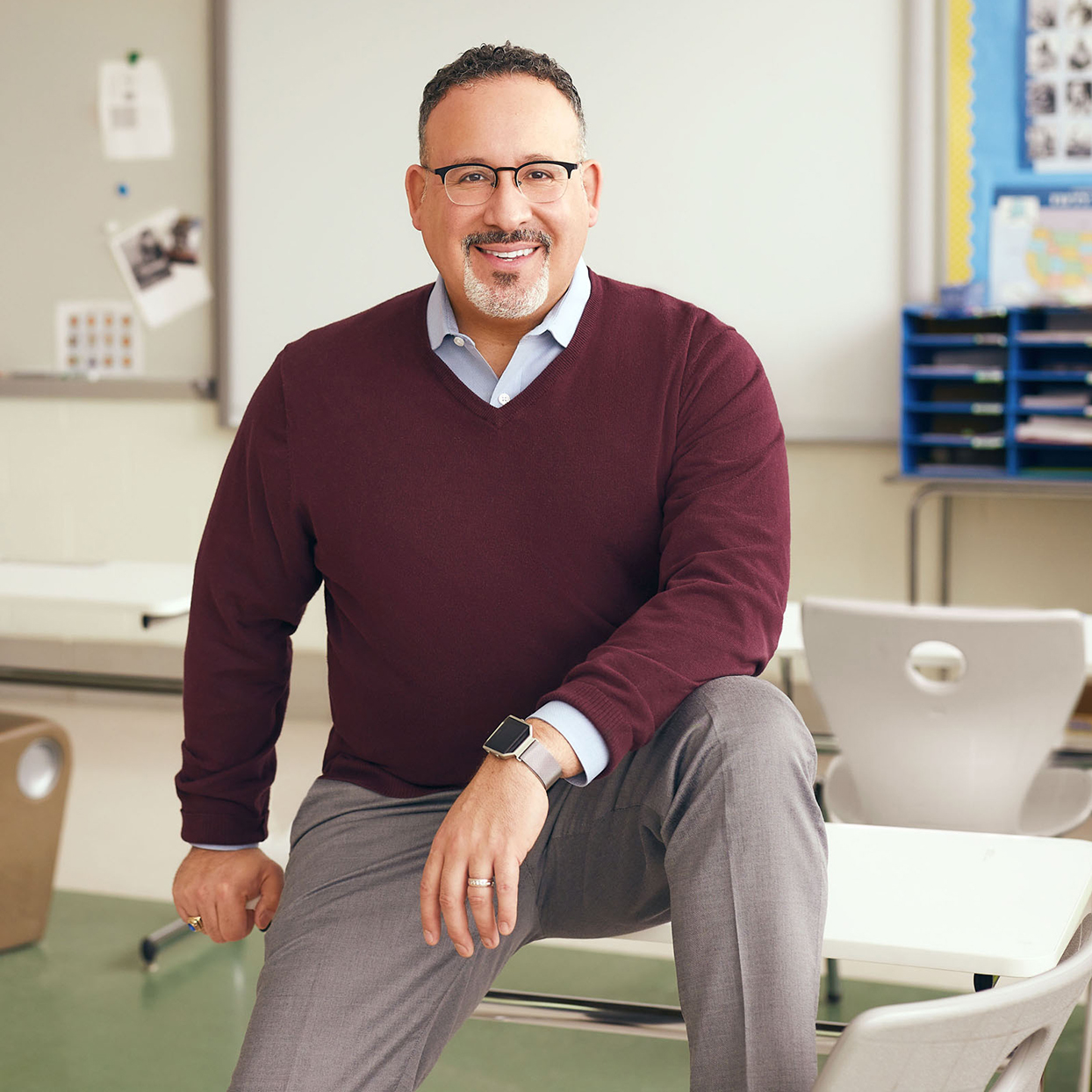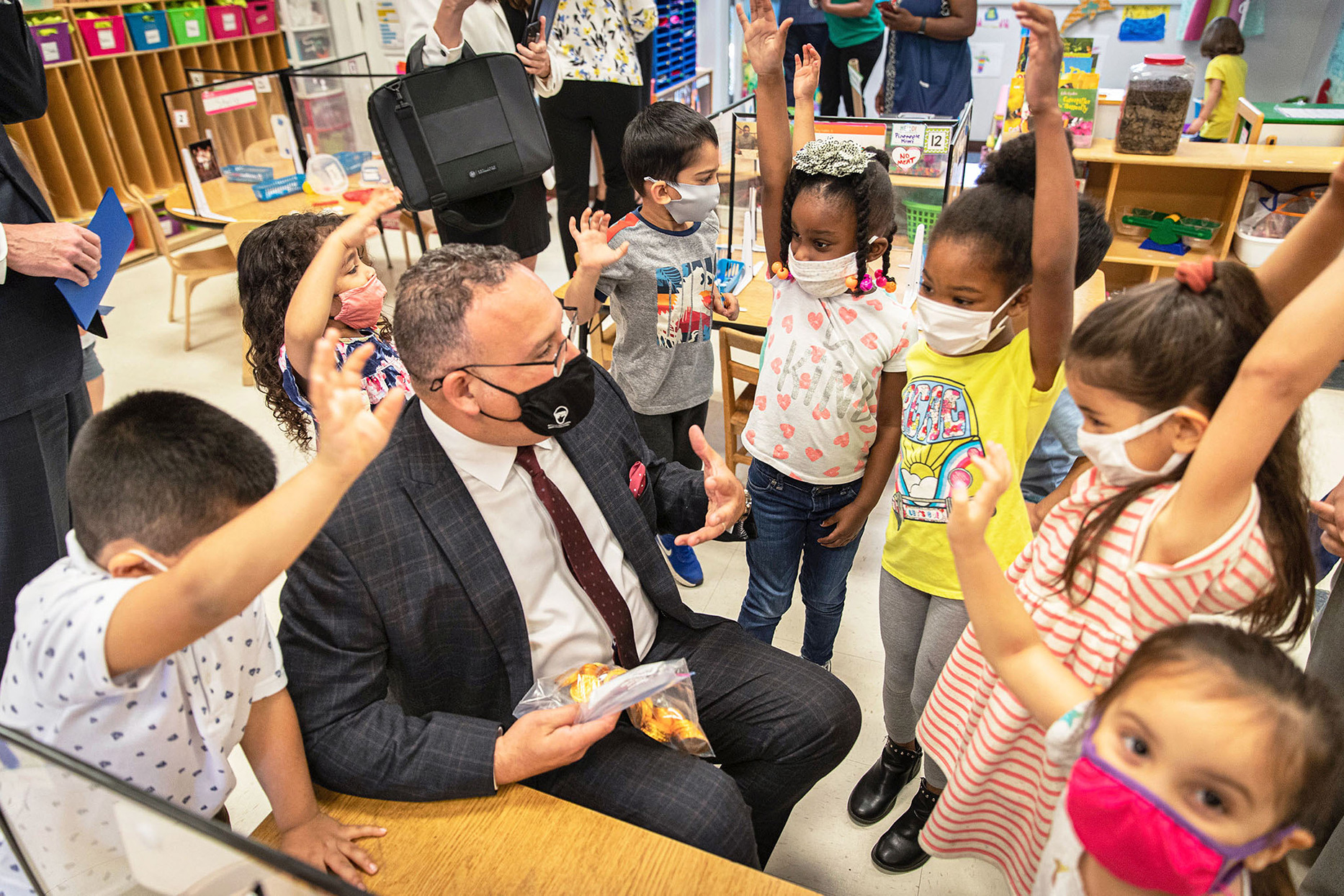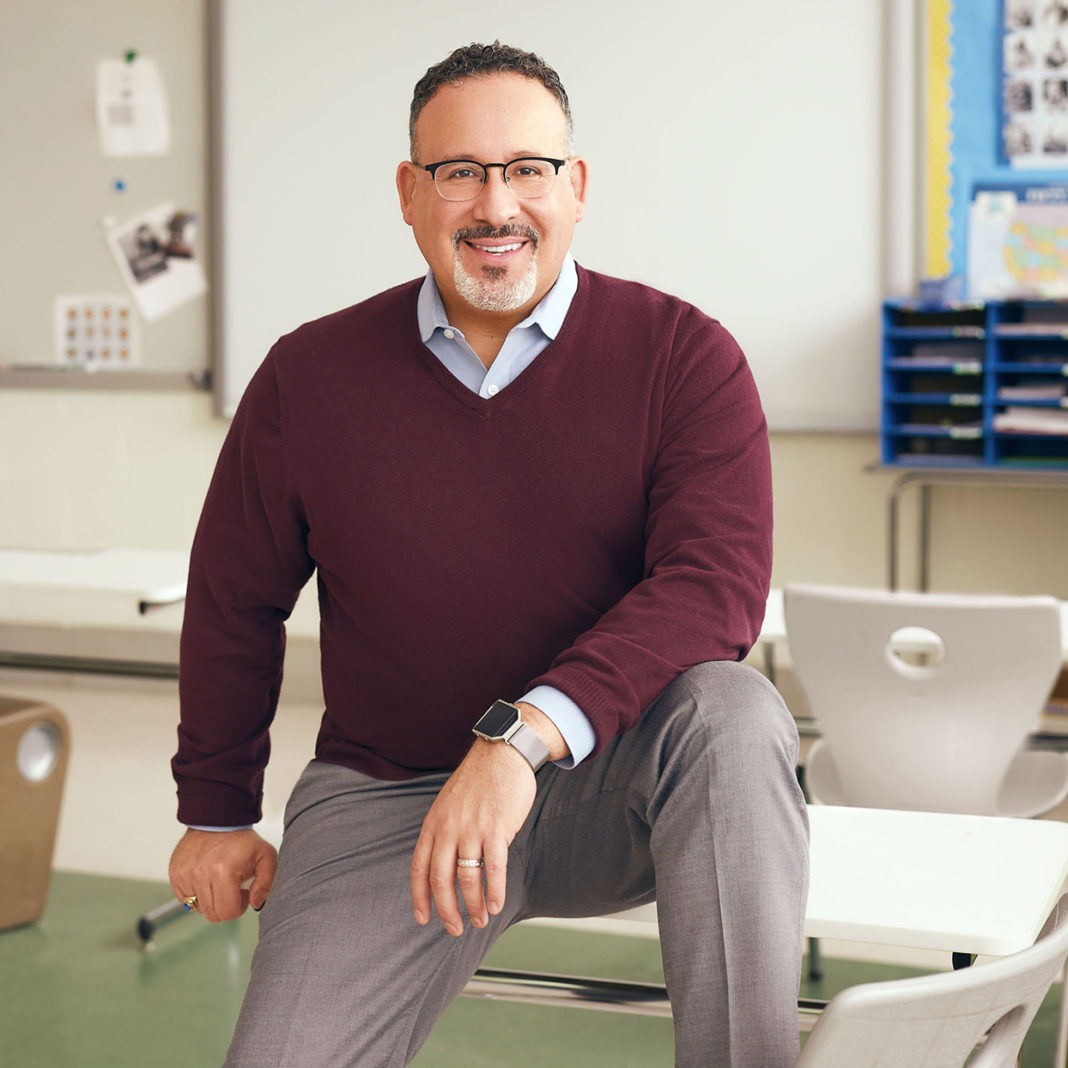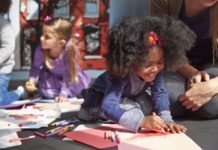
As a Latino, what does it mean to you to be named the secretary of education?
In the Latino community, when one person does something, it's a reflection of everybody. My grandfather cut sugarcane in Aguada, Puerto Rico, and became a foreman. He gave it all up to live in poverty on the fourth floor of a housing project in Connecticut. He raised his kids in a land where he didn't know the language so they could have a better life. Two generations later, I get to serve as secretary of education because of his sacrifice. All the hard work of those who came before allowed me to be where I am, so it's special. It's a family affair.
You grew up in the projects, started kindergarten with Spanish as your first language, and moved seven times before the age of 13. How did that shape you as an educator?
I don't look at those things as deficits. They enriched my life to the point where I have a good place to start in connecting to the folks I'm serving. Many of our students come into school with similar experiences, especially when it comes to identity. Figuring out how to show pride in who you are when the cultural norms at home are different from the ones at school. It really takes courage to be comfortable being a little bit different when you just want to fit in.
Was navigating cultural identity a challenge for you as a kid?
There's one moment in seventh grade that sticks out. Throughout school, I had always been called Michael, even though my birth certificate says Miguel Angel Cardona. In seventh grade, I asked my mom, "Mami, why do they call me Michael?" She didn't know. So I walked into the school office and asked the clerical staff to change everything on my paperwork to Miguel. I was 12 then. I'm 46 now. But I'll never forget it because that was me affirming mi identidad Latina and being proud. It's like I tell Latino educators now—embrace your Latino-ness as your superpower.
How is your heritage your superpower?
It's given me the values I need to serve in this role. When I was growing up, my family had a band, and we would do parrandas in the community, at church, or in nursing homes, bringing good cheer. My father was a police officer; my mother always had her doors open. Watching the joy that comes from service is something I felt connected to early on. And I love being bicultural. I love being able to go from a barrio to the boardroom and navigate both spaces comfortably. It makes you a better leader. If you're empathetic toward how other people observe their customs, you're more likely to be in a room with diverse perspectives and get to a good place.
Dr. Cardona began his career as a fourth-grade teacher and then a principal in Meriden, Connecticut.
The pandemic has widened inequities in education. What can schools do about it?
There was achievement disparity before, but the pandemic brought it to critical consciousness and lifted the urgency around it. So what do we do? We bottle that urgency and make sure we don't go back to the way things were pre-pandemic. We open up schools with bold ideas to address the social, emotional well-being of students in ways we haven't in the past. We recognize that many students, in particular Black and Brown students, have suffered loss and grief in the past year that may manifest itself as disengagement or lack of cooperation. As part of President Joe Biden's American Rescue Plan, which provides recovery funds to schools, I expect there to be more school counselors, social workers, climate specialists, and liaisons to provide that support this fall.
How can the needs of students be addressed more boldly?
I look at the song "Flor Pálida," by Marc Anthony, as a metaphor for school in the post-pandemic era. We are gardeners tending to education, which in the past year has been a wilted rose. But we're going to nurture it, care for it, and love it, and it's going to be bolder and more beautiful than it ever was before. Let's revisit what it means to have parents involved in education. They know their children better than we do. How are we engaging students? They have a voice—we're just not designed to always listen. I also want to see us be more innovative with regard to how we're designing our middle and high schools to prepare all students for college, two-year programs, four-year programs, credential programs, and the workforce needs that are out there.

“I hope I’m remembered as a person who wanted to serve students,” says Dr. Cardona. “And that every decision I made was with the students at the center of it.”
Many parents are worried about learning loss from the pandemic. How should they approach the new school year with their kids?
I'm going to put on my papi hat for a moment. I want my son, 17, and daughter, 15, to be smiling when they come home from school—and to know I'm bringing them into an environment where their sense of community is intact. If that's not there, the academic piece won't register. So my advice to parents is to be interested in how your children are feeling in terms of being welcomed back. The academic part may need to be done in small-group instruction for those who missed a lot, after-school opportunities for learning, and more intervention. It may take time. Nobody can do it alone. En la unión está la fuerza. You're stronger when you work with others. Our schools should provide that hub for you to have union and come out stronger on the other side.
What do you hope your legacy as secretary of education will be?
I hope I'm remembered as a person who wanted to serve students. I hope we address the disparities in access, not only in our pre-K-through-12 system, but to college and career pathways. I hope people look back and say, "That Miguel guy, he really cared about kids. He fought for those students who needed a chance and, in the process, helped us feel pride about the profession of education." And I'm going to bring a parranda to the White House … eventually!
Secretary Cardona Is Ready To Get Back To School
Must-read children's book: Goodnight Moon
Ultimate family movie: Stand By Me
Go-to snack: I don't know if it fits in a lunch box, but I love plátanos maduros.
First-day-of-school tradition: Morning pictures and selfies with my kids.
Fave veggie: Broccoli—I haven't met a vegetable I wouldn't eat.
Best subject: Art—drawing and painting.
Worst subject: You're talking to the secretary of education. I can't answer that!
This article originally appeared in Parents Latina's September 2021 issue as "US Secretary of Education Dr. Miguel Cardona."
































